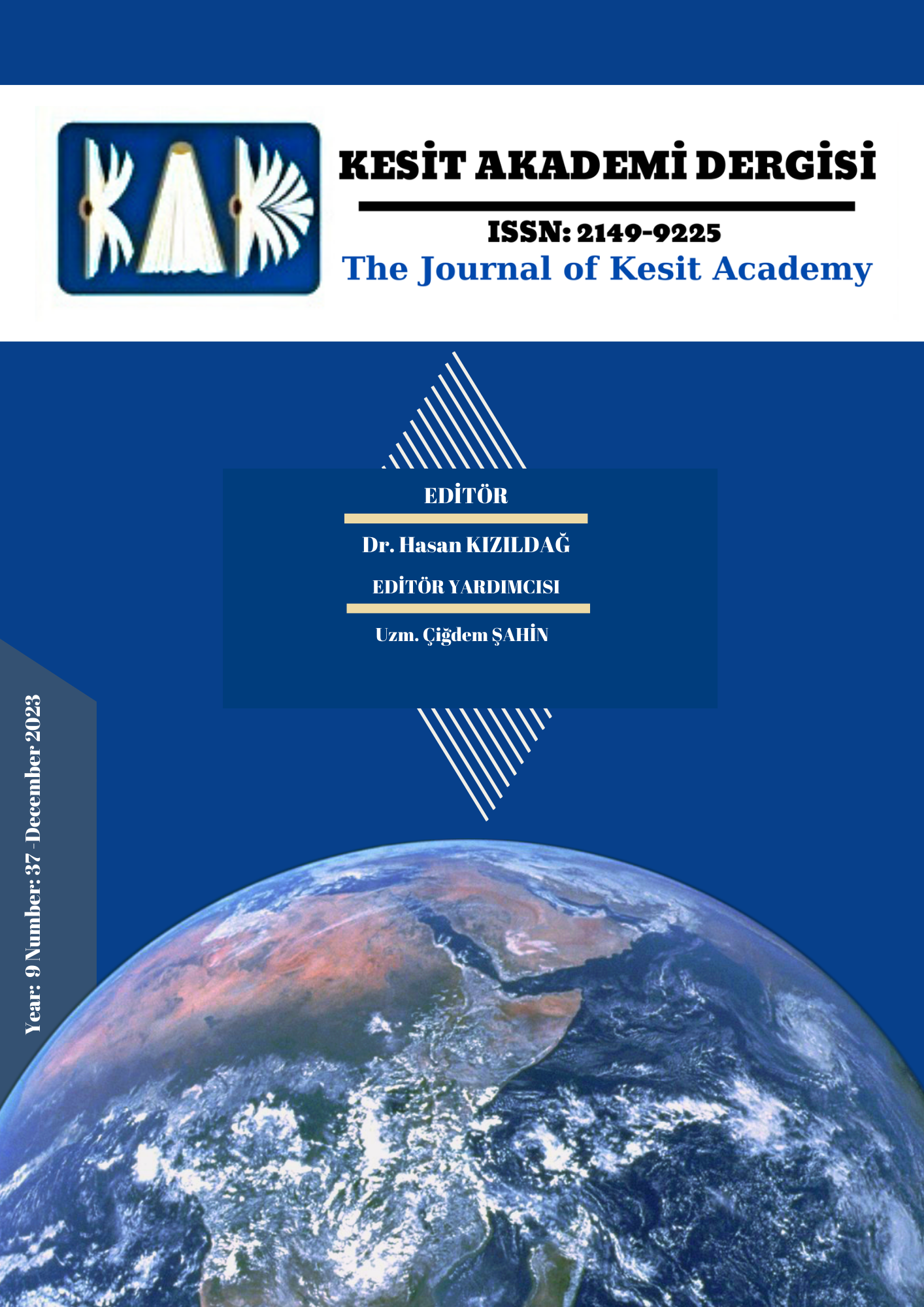Author :
Abstract
Din eğitimi, insanların kişisel, ahlâki ve manevi gelişimine katkıda bulunmayı hedefleyen önemli bir eğitim alanıdır. Din eğitimi, insanlara ahlâkî değerleri öğretmek ve onları güçlendirmek amacıyla çeşitli yöntemler kullanır. İşte çalışmanın amacı, Ahmed Ziyaüddin Gümüşhanevî'nin eserlerinde bu yöntemlerin izlerini ortaya çıkarmaktır. Ahmed Ziyaüddin Gümüşhanevî'nin ahlâk konusundaki eserleri, din eğitiminin insanı geliştirici yönünü anlamak ve değerlendirmek için önemli bir kaynak niteliğindedir. Ahmed Ziyaüddin Gümüşhanevî'nin ilgili eserlerinde günahların ahlâki, kalbi, ibadet, psikolojik, sosyolojik, dünya ve ahiret, beden ve ruh boyutlarını ele aldığı görülmektedir. Gümüşhanevî, bu konuları talebelerine anlatarak onların her çerçeveden bakmalarını sağlamakta ve kapsamlı bir eğitim anlayışına sahip olduğunu göstermektedir. Eğitim bilimleri açısından bakıldığında Gümüşhanevî'nin hem maddi hem de manevi eğitim verdiği anlaşılmaktadır. Konunun olumsuz taraflarını yorumlayıp olumlu taraflarını daha da ön plana çıkararak gelişimi desteklemektedir. Ayrıca, kişilere hem zihinsel hem de bedensel eğitim yöntemlerini aynı seviyede kullanarak insanın tüm yönlerini eğitmeye çalıştığı gözlenmektedir. Gümüşhanevî'nin eserlerinde aynı zamanda dua eğitimi de gözlenmektedir. Bu, insanların manevi gelişimine katkı sağlayan önemli bir eğitim metodudur. Dua, insanın Allah'a sığınma, niyaz etme ve bağlantı kurma şeklidir. Eserlerinde Gümüşhanevî'nin dua eğitimi konusunu ele aldığı bilinmektedir. Bu nedenle çalışma döküman analizi yöntemiyle incelenecektir. Sonuç olarak, Gümüşhanevî'nin eserlerinde günahların etkilerini ve önemini anlatarak insanların aşırılıklardan ve olumsuzluklardan kaçınması gerektiği vurgulanmaktadır. Dolayısıyla, günahlardan kaçınarak insanın kendini geliştirebileceği ve eğitimin amaçlarından biri olan insan-ı kamil olabileceğini ifade etmektedir. Ayrıca Gümüşhanevî’nin eserlerinde ahlâki, manevi ve dua eğitimi gibi farklı yöntemleri kullanarak insanların tüm yönlerini eğitmeyi hedeflediği de görülmektedir.
Keywords
Abstract
Religious education is an important field of education that aims to contribute to the personal, moral, and spiritual development of individuals. Religious education uses various methods to teach people moral values and strengthen them. The purpose of this study is to uncover the traces of these methods in the works of Ahmed Ziyaüddin Gümüşhanevî. Ahmed Ziyaüddin Gümüşhanevî's works on ethics are an important source for understanding and evaluating the developmental aspect of religious education. It can be seen that Gümüşhanevî addresses the moral, spiritual, worship, psychological, sociological, worldly and otherworldly, physical and spiritual dimensions of sins in his relevant works. By explaining these issues to his students, Gümüşhanevî enables them to look at them from every aspect and demonstrates that he has a comprehensive understanding of education. From the perspective of educational sciences, it is understood that Gümüşhanevî provides both material and spiritual education. He interprets the negative aspects of the subject and highlights the positive aspects to support development. Additionally, it is observed that he tries to educate all aspects of a person by using both mental and physical education methods at the same level. Dua (prayer) education is also observed in Gümüşhanevî's works. This is an important educational method that contributes to the spiritual development of individuals. Dua is a way for humans to seek refuge in Allah, make supplications, and establish a connection. It is known that Gümüşhanevî addresses the subject of dua education in his works. Therefore, the study will be examined through document analysis method. In conclusion, Gümüşhanevî emphasizes the effects and importance of sins in his works, emphasizing that individuals should avoid excesses and negatives. Therefore, it is stated that by avoiding sins, individuals can develop themselves and become an "insan-ı kamil" (a perfect human), which is one of the goals of education. In addition, it can be seen that Gümüşhanevî aims to educate people in all aspects by using different methods such as moral, spiritual, and prayer training in his works.
